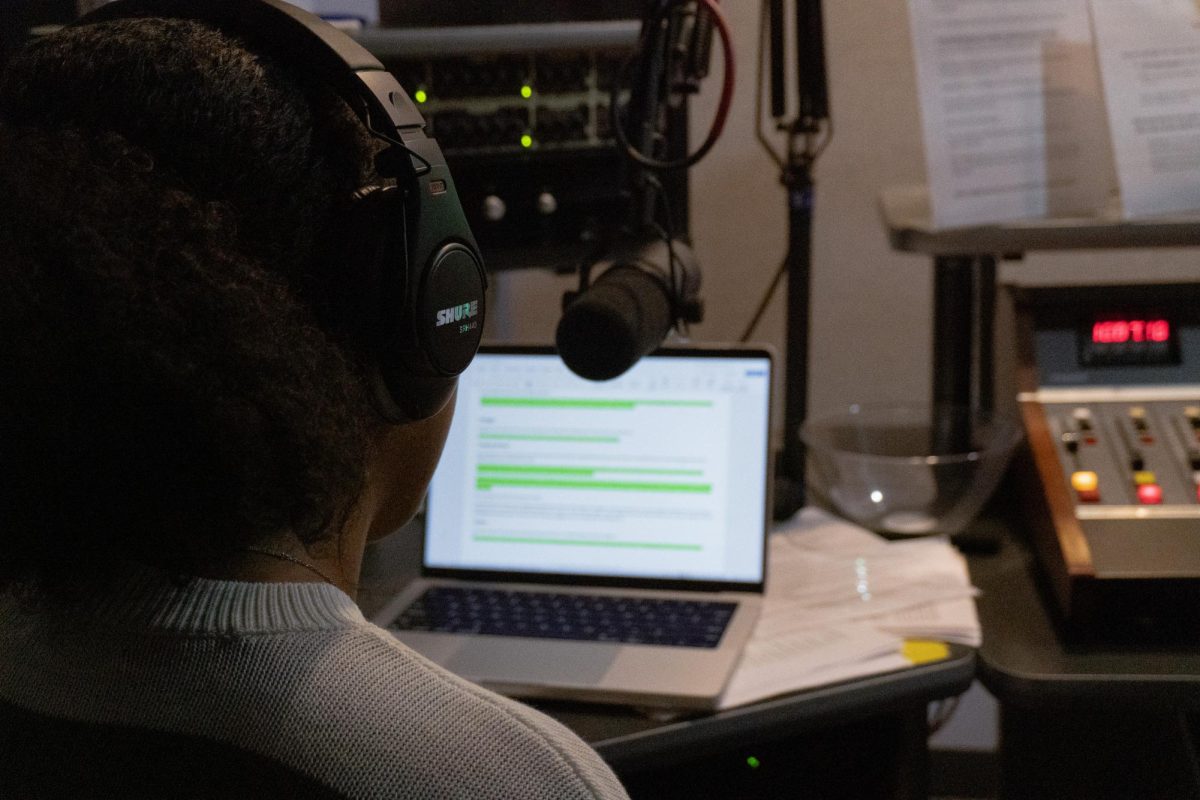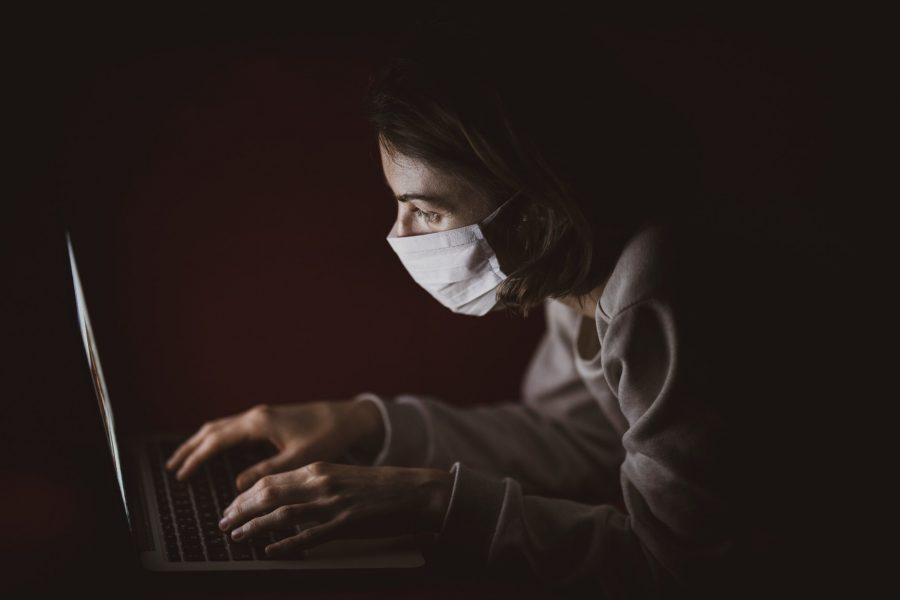Not only is the physical health of the public a top priority during a deadly pandemic, but coming in at a close second is the mental health of our citizens. At the beginning of the rise of COVID-19 in our nation, the CDC released a memo on how to deal with stress regarding mental health. Difficulty eating and sleeping, an increase in substance abuse, and fear and worry are some of the terms used by the CDC when listing the effects of pandemic stress.
Jeffery Bozzi ‘23, a Pennsylvania resident and communications student at Loyola, explained that when the pandemic first hit, he was forced to quarantine, and he felt like the whole world was shutting down.
“I was stressed because I wasn’t at school. I didn’t see anyone but my immediate family for a little while, and I was basically trapped inside my house,” he said.
Bozzi is far from alone in experiencing stress during this pandemic. According to an Instagram research poll of 287 people aged 15-35 years old, conducted in late November 2020, 82% have become more stressed during the pandemic. 94% said that this stress has had a negative effect on their mental health.
Breaking it down even further by looking at how men responded versus women, 67% of men said they had an increase of stress but didn’t think that it had a detrimental effect on the stability of their mental health. Being one of these male respondents, Bozzi felt that his mental health was still intact with the hope of a vaccine on the horizon, his ability to see his friends during Zoom classes, and his expectation of returning to campus.
However hopeful Bozzi is about his return to campus this semester, he still holds reservations about the pandemic.
“While the end of the pandemic is near, normal life won’t return until late 2021, and I am still a little stressed at the moment because of COVID-19 as it continues to surge across the country, infecting and killing so many people,” Bozzi said.
Poll respondent Kaleigh Gammons, a junior at Auburn University, exemplifies how stressing about the risk of getting COVID-19 is not only a fear, but a reality.
Gammons was in her apartment when she found out she had tested positive for COVID-19. She said:
“I just felt like a waste of space on my couch feeling so ill. It took a couple days for it to set in that I couldn’t see or touch anyone for 2 weeks.”
Gammons had to attend classes remotely while she was in quarantine, which only heightened her stress when having to navigate online assignments.
“I already struggle with depression, so the environment of sitting at home all the time to listen to class or do homework has been really detrimental to my mental health,” Gammons said. “In order to combat my depression, I try to be productive but when I have to sit in front of a laptop for 4 hours of classes instead of getting up and going on campus, it makes me feel so much worse.”
Stress is already a common contributor to Gammons’ depression. However, after experiencing COVID-19, she feels even more stressed when thinking about being exposed to it again. Her symptoms consisted of severe chest and throat pain, migraines, congestion, and loss of smell and taste. When talking about her life post-COVID, Gammons said:
“I am now a hermit in my own home, I rarely see my friends or go to bars or anything anymore. I lounge at home in my little cave and get cabin fever every day, which also worsens my depression.”
This experience of isolation negatively affecting one’s mental health is not atypical. The Kaiser Family Foundation has found that social isolation and loneliness is linked to poor mental health. KFF showed data that concluded people who were sheltering in place in late March reported negative mental health effects because of stress related to COVID-19, compared to those that did not shelter in place. Now with the impending need to physically isolate to decrease the risk of COVID-19, those who are staying safe in their homes are still vulnerable to the risks of declining mental health.
Clinical research coordinator at Duke University, licensed clinical mental health counselor, and therapist Meghan Althoff is not surprised that people are feeling a rise in stress while being isolated. Althoff explained that being social is one of the most important things for the development of young adults in order to maintain a balanced mental health status and overall healthy well-being.
“Young adults are still in a stage of identity development and their social group is a really large part of that. I think figuring out who you are and what you want out of life is a key tenant of young adulthood and college, and people need socialization to help do this,” she said.
When people are isolated at home, they are more inclined to retreat to their past habits, especially if they have had past mental health issues. Althoff explained that at this point, quarantine is triggering those same toxic tendencies for people who already struggle with their mental health. She called for those that are struggling to reach out for support from a therapist. Althoff said:
“For more common disorders, such as anxiety and depression, if you notice yourself withdrawing socially, having difficulty sleeping, losing interest in things you used to enjoy, or if it’s just more difficult to do things you used to do, absolutely seek help.”
Althoff also provided some ideas for those feeling stuck at home during this pandemic, saying things like Zoom calls, outdoor gatherings, walks, and hikes are key to maintaining a balance of socialization in one’s life. She added that if a family member or a friend is going through a tough time, sending a package, text, email, or gift card is a great way of reminding them that they are not alone.
Even though quarantine can bring out the worst in regard to a person’s mental health, Althoff said there is still a way to turn it around and find joy in spending time alone.
“Practicing mindfulness and deep breathing exercises when you feel your anxiety really increase, and assessing what is within and outside your circle of control during this time, can so help someone regain control of their mental state,” she said.
Althoff said that COVID-19 has forced us to slow down, reassess our priorities, and search for the positives in life, no matter how small. She said:
“COVID-19 has also caused a lot of reflection for many people and has given people time to focus on goals for themselves and their relationships.”
This is also true for Bozzi, who says that if anything, this pandemic has made him have a more positive perspective on life.
“On the positive side, I think the pandemic forced me to not take anything for granted, and to truly appreciate what I have in life, and how lucky I am to have such a wonderful family.”
Stay with The Greyhound for all Loyola-related COVID-19 updates.
Featured image courtesy of engin akyurt via Unsplash




















































































































Anonymous • Jan 24, 2021 at 3:34 pm
5